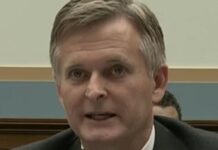
Now that 2017 has come to a close, it is time to look forward and focus on the promising projects and issues that will shape the future of transportation in the United States. Below are a few of the many noteworthy transit-related developments to watch in 2018, including particular undertakings from Florida to Texas, and more generally, broad transportation trends and issues that will impact mobility for decades to come.
Let’s Move Nashville
In October 2017, Nashville Mayor Megan Barry announced a sweeping transportation plan to improve mobility and tackle congestion in the metro area. The program, which is estimated to cost $5.2 billion to construct and nearly $9 billion to operate through 2032, calls for new rapid bus service, upgrades to Nashville’s existing bus system, and 26 miles of light rail. If passed by the Nashville Metropolitan Council, the measure will be presented to voters for referendum approval, which Mayor Barry hopes to accomplish in May.
Florida’s Brightline
The inter-city rail service will ultimately connect Miami, Fort Lauderdale, West Palm Beach, and Orlando. The project’s first phase, which runs between Miami and West Palm Beach, is set to launch this year, with limited service beginning on January 8th. Construction on the project’s second phase, which will connect South Florida to Orlando and its many theme parks, is scheduled to begin sometime in the first quarter of 2018.
The Texas Bullet Train
Texas Central Partners is developing a 240-mile high-speed rail line that will connect Houston and Dallas/Fort Worth in less than 90 minutes. The company expects to deploy eight-car trains modeled on the N700 Tokaido Shinkansen bullet train, currently in operation between Tokyo and Osaka, Japan. Construction on the project, which recently won a key federal environmental approval, could begin next year.
Electrification
The electrification of vehicles, particularly public bus fleets, will surely remain an important, hot-button issue in 2018. Recently, several major cities and transit agencies have more fully embraced battery-electric technology. For example, the mayors of London, Los Angeles, Barcelona, and Paris, among others, committed to procuring exclusively zero-emission buses beginning in 2025 in an effort to improve mobility and address climate change.
Infrastructure
Bolstered by a successful tax reform effort, President Donald Trump hopes to make infrastructure among his administration’s top legislative priorities in 2018. The president, at least while campaigning, pledged to invest $1 trillion in the nation’s imperiled infrastructure. The White House, however, has yet to release any substantive details regarding the administration’s infrastructure hopes. Furthermore, the prospects of bipartisanship on this issue may be overblown. While some fiscal conservatives are concerned about additional spending, Democrats have taken issue with Trump’s plans for infrastructure financing, which call for only $200 billion in federal investment and hope for an additional $1 trillion to flow from private investors, as well as state and local governments.









